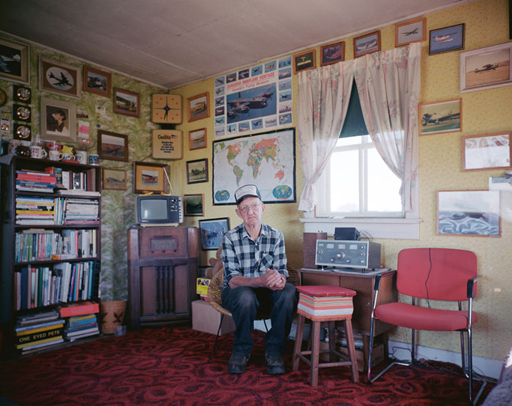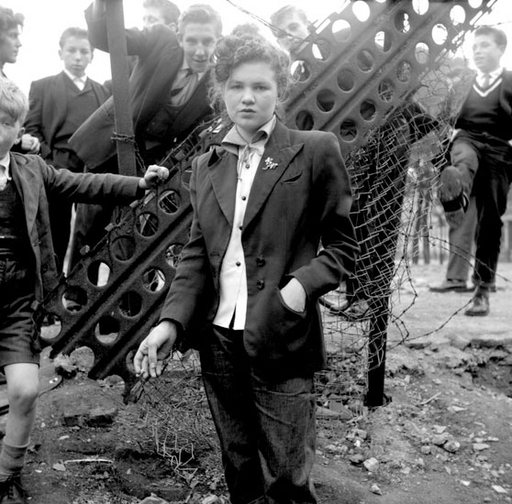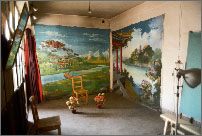November 7, 2011
Small Victories
I went out on a walk with my 4 year old Gabriel yesterday. "Where are we going?" he asked as I helped him put on his shoes.
"Nowhere, "we're just walking."
"What do you mean?"
"We're going out to wander. It's a beautiful day."
"But where are we going?" he asked again suspiciously.
"Nowhere. Which way do you want to go?"
He pointed towards the river.
We walked and talked. And we talked and walked. We discussed ducks, Louis Armstrong, the nature of rocks, clouds, snowfall, wind, big brothers, blood, girls, trees and a few other things.
Gabriel directed me to take pictures of him standing on various rocks and benches.
At Brooklyn's Pier 1 park, we spread out on the empty lawn and looked at the blue sky. He ran up the hill, rolled down it. He put grass on my head. More talking. Then, a skinned knee after a second run down the hill ended up in the gravel. No. Big. Deal.
We circled back around by the Brooklyn Bridge and passed a neighborhood playground. "I used to go there when I was little." Gabriel looked through the fence, "We found a bone in there once. Maybe some kid died in there."
He wanted to walk by his school (Empty on a Sunday and deemed creepy. "I thought the teachers lived here... It is very quiet now.")
Soon we were back in familiar territory and then home. The four mile wander was over. He ran through the door to find his brother... they started playing/wrestling immediately. No talk of where we had been. No mention of the walk later at bedtime either.
But this morning on the way to school he asked, "Dad, can we take another walk soon? You know, one where we don't go anywhere."
Victory.
November 7, 2011
Thomas Gardiner
I enjoyed going through Yale MFA student Thomas Gardiner's project "New York Is Big But This Is Biggar" documenting small towns in Western Canada. As a Saskatchewanian friend always says, "You know we're the same, but a little different."
November 8, 2011
Notes for college interviewees i.e. How to prepare for your college interview.
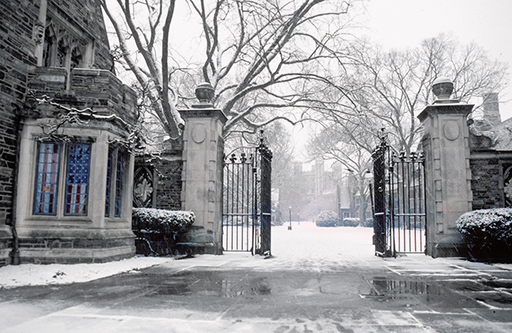
I've been interviewing high school kids for college for almost 15 years and am about to start interviewing for next year. Here are a few general notes that might help interviewees. If you've googled your way here, you're on the right track, you're preparing.
Before beginning, be prompt and courteous when setting up a meeting time. Your interviewer is probably a busy person who is making time for you. Be respectful. Set up the interview yourself (i.e. don't rely on your mom). Don't be late.
1. If you're applying to a top school, odds are you're qualified to go there. Most of you, on paper, look pretty similar. You all have good grades and high SATs; you are all active in extracurriculars; many of you do important community work; in short you're all pretty extraordinary. But too many of you are applying for too few spots. Your college interview, like your college application, is a chance to differentiate yourself. What are you passionate about? What moves you? What gets you up in the morning?
2. You're probably better off applying to 3 schools than you are 10. Make each application count. It is much easier to focus on 3 schools than 10. I've had lots of kids start interviews by talking about other interviews and how tired they are of the application process. This is not a good way to start.
3. Learn about your interviewer. We google you. You should google us too. When we know things about each other, it's easier to have a real conversation.
4. I could care less about your grades, that's for the people in admissions to sort through. I want to hear your story. Think about your story. What made you the person you are? How do you edit your life into an hour? What stories define you? Practice telling your story. Practice telling it out loud (you might just learn something about yourself in the process). Record yourself w/ friends interviewing each other. Like anything, the more you practice, the easier the real interview will be.
5. People who are giving college interviews, tend to be people who love their schools and are protective of them. Learn something about the school. Every school has its own culture. How would you fit into that school culture (or disrupt it!). Read the school newspaper. Visit the school if you can. Be prepared for the question, "Why [school name]?"
6. A good interviewer will ask open ended questions that defy easy answers. It's ok to pause and think about your response. Don't be scared of silence.
7. Be honest. Don't try to be something you're not.
8. Ask questions.
9. Slow down. Breath.
10. Follow up.
November 9, 2011
Archdukes Albert and Isabella Visiting a Collector's Cabinet
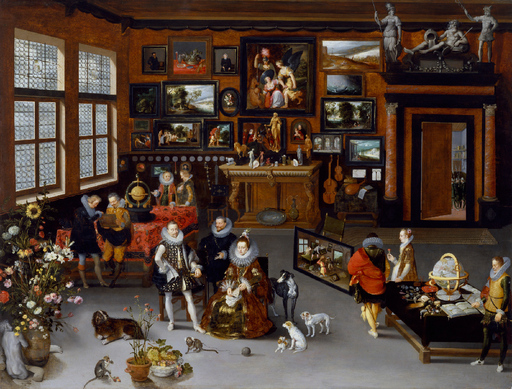
by Jan Brueghel the Elder &Hieronymus Francken II
Uploaded, just because it's awesome. More information & link to a gigantic version of the image.
November 22, 2011
Georges Melies
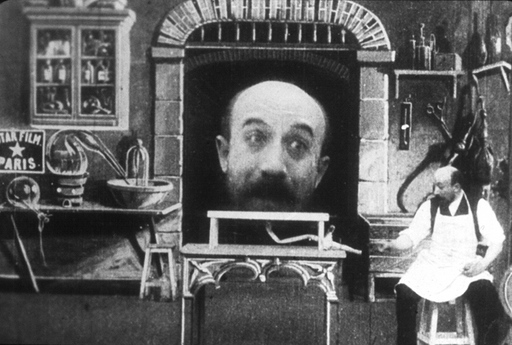
With Scorsese's Hugo coming out soon I thought it would be a good time to revisit some of Georges Melies' early films (Hugo features a fictional Melies). Melies was a magician who originally used his films in his act, but the films quickly took over and by 1898 he was the largest producer of staged films in France.
Melies was one of the first filmmakers to use film to tell a story with sets, he created the first proper movie studio (with moving sets, and glass walls to let in the maximum amount of light), he was one of the first filmmakers to experiment with long form film, and he shot the first erotic film (After the Ball) and of course the special effects techniques he perfected still underly most modern effects. Melies' special effects techniques are even more impressive if you consider that most were created in-camera by rewinding and re-filming various parts of the scene. He made hundreds of popular films, but never made much money from them. Distribution was expensive and he had problems with counterfeiters. (Thomas Edison copied and distributed Melies' films in the US and never paid Melies a dime.) By 1913 his film was failing and he sold what remained of it. Most of Melies' archives were destroyed (the majority of his cellulose film stock was melted down by the French Army to make boot heels). His wife died and he married his mistress. For many years he was a toy salesman at a kiosk in Montparnasse station. His plight was discovered by a writer in a French film journal and soon after some of his films were discovered, restored and exhibited. A group of filmmakers put together a pension fund for him and he spent his last years in a home for cinema veterans.
Thanks to web, Melies' existing films are very easy to find. I've included a few below (my favcorites are starred).
Note most of these films include bad modern soundtracks and are better watched silent.
1896 - The Haunted Castle ✶
1896 - A Nightmare
1896 - The Vanishing Lady
1897 - The Haunted Castle (tinted)
1898 - Un Homme de Têtes
1898 - The Astronomer's Dream
1898 - The Magician
1899 - Man With a Rubber Head ✶
1899 - The Mysterious Portrait
1899 - Evoking the Spirits
1899 - Cinderella
1900 - The Magic Book
1900 - One Man Band
1902 - The Devil and the Statue
1902 - The Eruption in Martinique
1902 - Gulliver's Travels
1902 - A Trip to the Moon
1903 - The Melomaniac ✶
1903 - The Infernal Cauldron
1903 - The Infernal Cakewalk
1904 - Untamable Whiskers ✶
1904 - Le voyage a travers l'impossible"
1904 - The Mermaid
1905 - The Black Devil
1905 - The Fantastic Dirigible ✶
1905 - Living Playing Cards ✶
1905 - The Gambler's Paradise
1906 - The Merry Frolics of Satan
1907 - Satan in Prison
1907 - Hilarious Posters
1909 - Le Locataire Diabolique
1908 - La Photographie electrique a distance
1912 - The Conquest of the Pole ✶
A more complete list of Goerges Melies films.
For decent copies of these films you should splurge and get the Melies 5 DVD set. It features 170! shorts.
Related: Multiple Sidosis
November 28, 2011
Ken Russell
The British director Ken Russell died yesterday. I never cared much for the films that gave him notoriety, but always found his photography striking. Like Kubrick he started as a photographer and made many notable images before turning to directing. He aspired to be a fashion photographer, but his documentary images are the ones with real meat. Only a few of this type of image can be found online (I've seen book of his work somewhere, but can't find a link),
A few image galleries: Ken Russell a Retrospective, Images for Sale, Ken Russell's Fabulous 50's.
Related: Kubrick's Photography: Overview, Chicago, New York.
November 29, 2011
Bad Habits

I've always loved the classic Indian educational posters of the Indian Book Depot, Map House. Today I discovered The Indian Book Depot is now online! The site features a fairly comprehensive collection of their classic posters and maps.
You can also find the charts in a beautiful oversized (and now out of print) book called An Ideal Boy.
p.s. How many of you had the Monks 'Bad Habits' start playing in your mind when you saw the title for this post?
